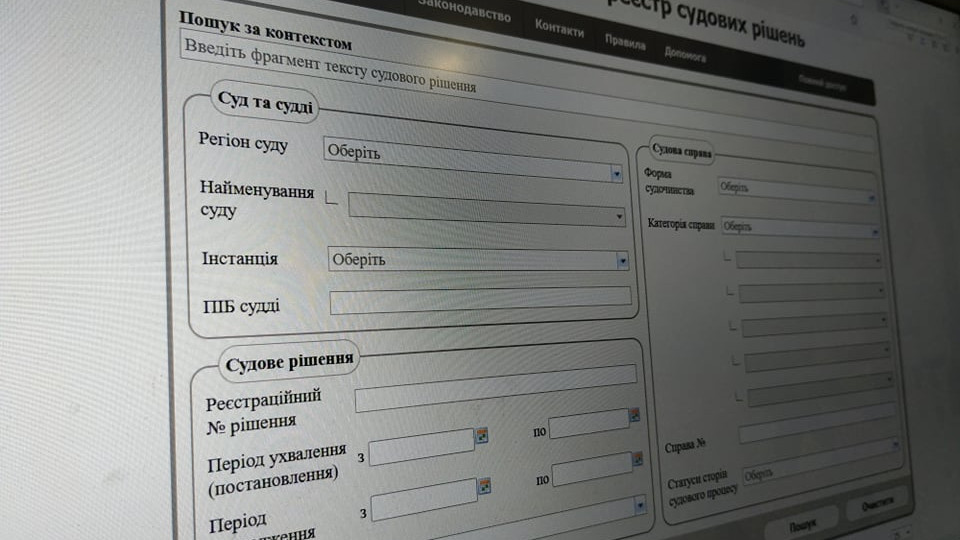I constantly strive to develop and acquire new knowledge, my experience and additional education confirm this.
The unified state register of court decisions allows to effectively collect, store, protect and provide access to court decisions, which contributes to increasing public trust in the judicial system and improving its work. It also helps ensure a transparent record of court proceedings and decisions, which is an important aspect of ensuring legal certainty in society.
The register covers a wide range of court decisions covering almost all aspects of judicial activity in Ukraine. The inclusion of decisions from different levels of the judicial system, from the Supreme Court to local courts, ensures the completeness and representation of court decisions in the Register. Such broad coverage helps to ensure that information about court decisions is accessible and facilitates their analysis and understanding. It is also important that the register does not include court decisions that contain state secrets, which ensures compliance with the legislation on confidential information.
Providing the opportunity to search, view and print electronic copies of court decisions through the official web portal of the State Administrative Court, free of charge and with the possibility of obtaining information about court decisions for the previous five years, contributes to the transparency and accessibility of justice. This approach helps the public and other interested parties to access judicial information to ensure legal certainty and control of the courts.
- These details enable users to perform an accurate and efficient search for court decisions in the Register according to various parameters. Example:
The name of the court allows you to find decisions made by specific courts.- The court code helps identify courts by statistical code.
Surnames and initials of judges allow you to find decisions made by certain judges.
The date of the decision makes it possible to search by date.
The form of judicial proceedings and the form of a court decision indicate the type of process and the decision itself.
The case number and date of submission to the court allow identification of specific cases.
The names of the parties and their status help to search for participants in the legal process.
Keywords allow you to search for specific topics or concepts contained in the text of decisions.
Thus, a procedural document that is adopted by the court during the consideration of the case, regardless of the stage of the court proceedings, is a court decision. It can be a resolution, a separate resolution, a decision, a judgment, a resolution or a court order, depending on the specific situation.
The Law of Ukraine "On Access to Court Decisions" establishes the basic principles of openness of court decisions. In particular, it provides that the court's decision is announced publicly, that is, open to the public, except for cases when the case is considered in a closed court session.
This ensures transparency and openness of the judicial process, allowing the parties to the case and the public to be informed about the judicial decisions made and their motives. Public announcement of decisions also contributes to ensuring the right to a public trial and increasing confidence in the judicial system.
These details contribute to convenient and efficient user access to judicial information contained in the Register.
Individual information searching in open-data of judicial decisions may occur for various reasons, such as verification of legal or factual information, conducting research, preparation for legal proceedings or educational purposes.
































